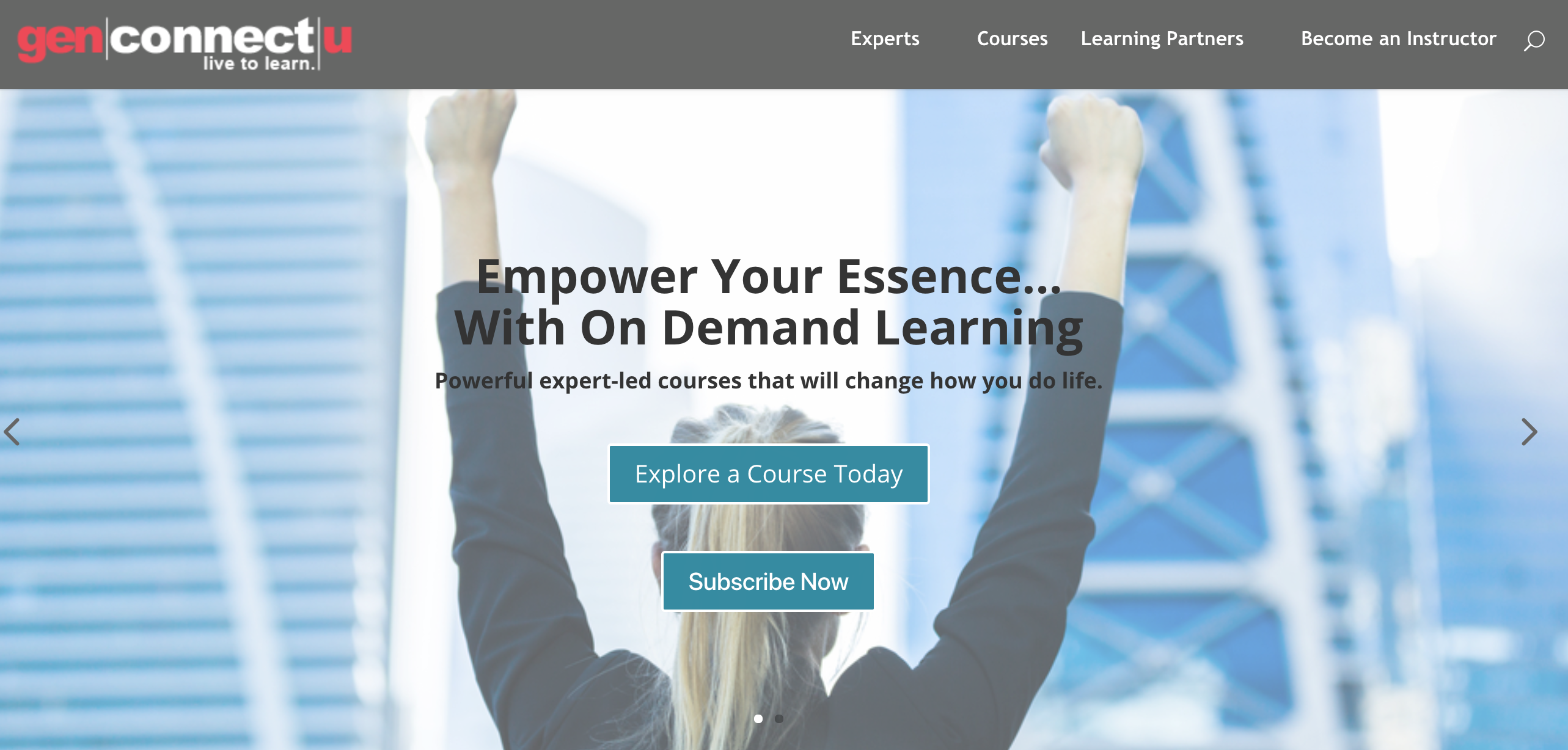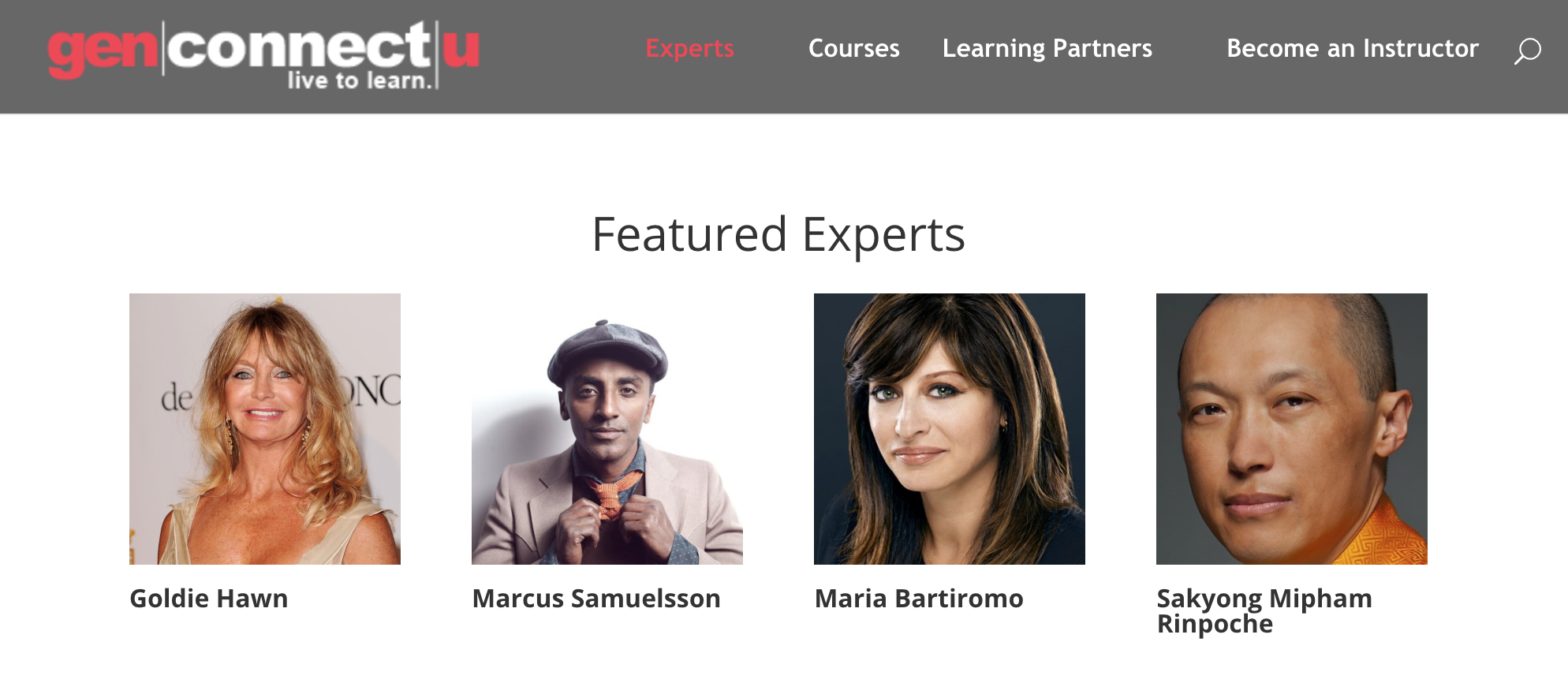Nancy Spears, CEO of genconnectU, on when and how to pivot
Since then genconnectU, which delivers online learning video on a wide array of topics, has thrived. Here Nancy talks about what she has learned about developing a subscription model and when is the right time for a media business to pivot.
 |
Nancy will be giving more details about how she built her businesses at DIS 2019. Ticket details are below.
***Book now at our standard rate for DIS 2019, taking place on 25 to 26 March in Berlin. Delegate rates will increase by €200 after 12 March. Sign up here***
Tell me a bit about yourself? What was your career before genconnectU?
I have been in communications and storytelling all of my life. My first company, CEM was a branding and marketing company headquartered in Atlanta, Ga with offices coast to coast in seven cities in the US. I had the good fortune to sell that business to IPG. After my exit I took to writing and published a book called Buddha: 9 to 5. It was written to help integrate ethics into Corporate America. I was steeped in Buddhism and meditation and saw the eightfold path as a vehicle to teach business how to communicate from a place of integrity and empathy while increasing the bottom line. I still have hope!
You launched genconnectU a decade ago. Explain what it is and what problems you are trying to solve?
When I launched genconnectU I had a vision to connect generations through wisdom. We chose video as our main content delivery media and back then video was not huge like it is now. Over the last eight years we have grown our library to over 8,000 short-form video clips with incredible experts in a variety of categories. Today, much of that content is still relevant, delivering evergreen wisdom from these experts. So the vision was, I guess you could say, timeless in a way.

Your businesses have always had a strong technological edge, how important has this been in the growth of genconnectU?
Well, as noted regarding being early in on video, we think that if we can embrace technology to improve the user experience of engaging with content then it is very important. When we pivoted genconnectU to online, on demand education, the choice of technology that we used to deliver the content was essential to our success. We refined an LMS (learning management system) by creating our own best practices to ensure a consistent UX and create robust levels of engagement.
Why did you see it as imperative to move away from advertising based model?
The market drives these decisions, and since the market is always changing, being agile and embracing change is essential to long-term success. At the time, the market was, and still is, flooded with digital advertising options. In order to succeed a platform needs mass scale. We decided that in the end, it still all was about the content and we did not want to be dependent upon driving scale for the sake of survival based upon advertising revenues alone.
Explain how a la carte and subscription services work. How do you market these to consumers? How successful has the transition been?
The transition has been the best move we have made to date. We have figured out a way to integrate both models, ala carte and subscription along with a couple other revenue streams to stay diversified and at the same time scale. We market in several ways, B2C digitally, B2B through what we call our Learning Partners and organically B2C through our experts and social media.

When do you think it is the right time for a business to pivot? What are the warning signs execs should look for?
You should pivot before you think you should. My thought has always been to stay out in front of the market by anticipating what the consumer needs. It is better to be a trendsetter than to follow, even if you get push back or people think you are crazy! The long-term reward far outweighs the short-term risk.
What lessons about pivoting a business model can you share with other media companies who may be facing similar issues?
When I founded my first startup, CEM, I had such pushback. Old traditional PR and ad firms didn’t see the huge value in events as a branding vehicle and most people told me it wouldn’t work. Fast forward to 2018, there is now event planning curriculum and majors being offered at the Schools of Communications at many major universities.
I think the same holds true for online education. Consumers across generations are in search of ways not only to expand their own skill sets but also looking for ways to increase their own credentials. GenconnectU is offering that.
My advice is to keep your peripheral vision acute stay connected to the customer. The consumer always tells us what they want and need.
How do you see genconnectU developing in the future?
As we scale courses in the categories that are most important to female audiences, the potential is truly unlimited. Our goal is to scale globally with the brightest and best in class experts while improving lives and empowering women everywhere. To that end, we will continue to pivot as necessary to get us there!
 |
***Book now at our standard rate for DIS 2019, taking place on 25 to 26 March in Berlin. Delegate rates will increase by €200 after 12 March. Sign up here***
More like this
How M&A helps shape innovation in magazine media
How brand extensions can transform a media business
Has the time come for content micropayments?
Vince Errico, chief digital officer at Trusted Media Brands, on the challenge of culture change









